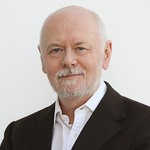Blog
From the Editor's desk (November 2011)
Tony Addison
As we come to the end of November, the snow has yet to arrive in Helsinki. We continue to enjoy clear skies and spectacular sunsets across the calm Baltic, but we are losing two minutes of light every day as we head towards the shortest day of the year.
So with winter almost upon us, it is a good time to take stock. In this month’s Angle, we return to global trade governance, with Part 2 of Alisa DiCaprio’s article. Lucy Scott focuses on Bangladesh’s achievements and challenges. Lucy and I also pick out some messages for the high-level aid meeting takeing place in Busan, South Korea. And I reflect further on the currency wars, after my first piece on this topic in last month’s Angle . Readers will see me repeatedly returning to currencies in 2012 as there is no shortage of excitement, especially in the eurozone.
For those in Busan, our working paper series has some key reading material, just out. Channing Arndt and Christian Friis Bach (who is the new Danish development minister) assess the role of aid and other finance in tackling climate challenge. Peter Heller gets his telescope out to map some future scenarios for aid and the donor community. Nicola Banks looks at donors’ support for urban poverty reduction (which, arguably, needs to be higher up their list of priorities). Thierry Kangoye asks whether foreign aid promotes democracy. And with the Arab Spring commanding everyone’s attention, Jane Harrigan discusses the political economy of aid in the Middle East and North Africa, past and present. All these papers are from our ReCom project, a partnership between UNU-WIDER, Danida and Sida to explore what works in aid, and what could work better. Watch our web site for more soon.
We also have the first working papers out on the new development model in Latin America, led for us by Andrea Cornia. Andrea and co-authors look at the new fiscal pact in Latin America, with higher tax revenues financing more social spending, while Armando Barrientos assesses the social protection scene in the region, which is commanding a lot of attention these days. Do look over as well the report from the project meeting in Buenos Aires in September’s Angle. Annett Victorero introduces you to both working papers in this issue of Angle.
The global economic crisis is starting to slam into commodity prices, with some major sell-offs recently; copper is right down on the year, for example. But what of the longer-term, especially the relative price of commodities to manufactures which governs the terms of trade of many developing countries? A new working paper by Jesus Otero and Ana Maria Iregui takes a thorough look at the commodity story. This and many other UNU-WIDER working papers can be found here.
Angle returns in December, with a report on our forthcoming Nairobi conference with the Africa Economics Research Consortium on the macroeconomic management of aid, news from our ReCom programme, and other developments in UNU-WIDER’s research programme.
Tony Addison is Chief Economist-Deputy Director of UNU-WIDER, and editor of the WIDER Angle.
WIDER Angle newsletter
November 2011
ISSN 1238-9544
 Join the network
Join the network

